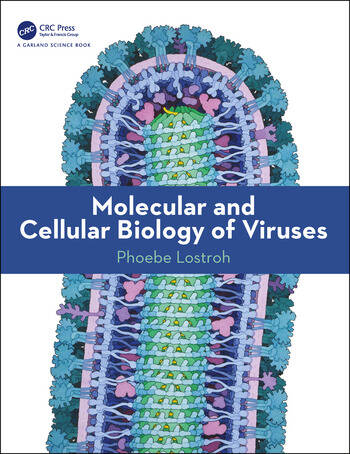As a leading publisher of trusted science, technology, medicine, humanities and social sciences research, Taylor & Francis is committed to helping public health authorities, researchers, clinicians and the general public contain and manage the spread of COVID-19.
This microsite provides links and references to all relevant COVID-19 research articles, book chapters and information that can be freely accessed on Taylor & Francis Online and Taylor & Francis ebooks in support of the global efforts in diagnosis, treatment, prevention and further research into COVID-19. As signatories to NIH’s Access to Research initiative, along with the Wellcome Trust’s coordinated action on sharing research data and findings relevant to the outbreak, Taylor & Francis has been working with WHO to ensure this content is clearly signposted. We are also aligning the OSTP’s initiative to centralise resources on PubMed and are currently working with them to ensure rapid human and machine-readable access (where possible) to research articles and data through the NLM’s LitCovid portal.
More research in this field has been collated by colleagues at F1000Research, through a dedicated Gateway which showcases research published in this area, including preprints, to ensure immediate access to the latest research developments Explore coronavirus research on F1000
Prioritising rapid publication of COVID-19 materials
We are working with our editors to prioritise peer review of all relevant research. We are also focusing our workflow to ensure that materials related to the outbreak are fast-tracked through the publication process once they are approved. Editors are proactively encouraging authors to publish and share the data that forms the basis of their research in line with FAIR data principles, and our own data policies.
Journals
1-147 of 4,900+ results.
Access the full Coronavirus Research Archive
Oany A, Emran AA, Jyoti TP
Published online: 21 August 2014
Al-Tawfiq J, Memish Z
Published online: 3 November 2014
Srivastava S, Kamthania M, Singh S, Saxena AK, Sharma N
Published online: 21 November 2018
Books
-

Tapas Kumar Koley, Monika Dhole
Introduction
Chapter 2: Pandemic: The Basic Principles
Chapter 6: COVID 19: The Signs of Death
-

Claudine Burton-Jeangros
Chapter 4: Epidemics and risk communication
Chapter 1: The challenges of building pandemic response systems based on unique cases
Chapter 3: Comparing the 2009 A(H1N1) pandemic and 2014 Ebola virus disease
-

W.H. Bassett, Tim Deveaux
Chapter 4: Disease control
-

Chris Carter
Chapters:
9: Managing a major incident in critical care
14: Oxygen and mechanical ventilation
6: Critical care in resource limited environments
-

Taylor & Francis
Chapter: Pandemic Planning
-

Leonhard Held, Niel Hens, Philip D O'Neill, Jacco Wallinga
Chapters:
3: Infectious Disease Data from Surveillance, Outbreak Investigation, and Epidemiological Studies
5: Key Parameters in Infectious Disease Epidemiology
6: Contact Patterns for Contagious Diseases
-

Edited ByNancy Khardori
Chapter: Microbiological Diagnosis of Viral Diseases
-

Vicki M. Bier
Chapter: Mitigating extreme infectious disease disaster risk
-

Edited ByDijendra Nath Roy
Chapter: Terpenoids Against Infectious Disease
-

Derek S. Reveron, Kathleen A. Mahoney-Norris
Chapter: Health Security
-

Yves Beigbeder
Chapters:
Severe acute respiratory syndrome (SARS) and the avian influenza
The H1N1 flu pandemic crisis and Middle East respiratory syndrome (MERS)
-

Peter H. Koehn
Chapter: Pathogens without borders
-

Edited ByDavid L. Blazes, Sheri H. Lewis
Chapters: 4: Surveillance challenges in resource - limited settings
11: Role of mass gathering surveillance
6: Effective public health data visualization
-

Meera Chand, John Holton
Chapter: Four Cases of Mers - Cov
-

Glenn Laverack
Chapters
1: Health promotion, disease outbreaks and health emergencies
7: Health promotion and person - to - person disease outbreaks
10: The post-outbreak and emergency response
-

Edited By Sunit K. Singh
Chapters
25: Emergence and Pathogenesis of Swine Influenza Viruses in Humans
6: Aerosol Spread and Communicability of Respiratory Viruses
7: Environmental Variables in the Transmission of Respiratory Viruses
-

Edited By Adam Fraise, Christina Bradley
Entire book
-

Johan Giesecke
Entire book
-

Edited By Xuefei Ren, Roger Keil
Chapter:Global cities and the spread of infectious disease: the case of Severe Acute Respiratory Syndrome (SARS) in Toronto, Canada
-

Jonathan Dakin MD FRCP BSc Hons, Mark Mottershaw, Elena Kourteli
Entire book
-

Nitin Arora, Shondipon K. Laha
Entire Book
-

Eamon Shamil, Praful Ravi, Dipak Mistry
Entire Book
-

Phoebe Lostroh
pages 152-158
-

Edited ByAnn H. Kelly, Frédéric Keck, Christos Lynteris
Chapter 1: Simulations of epidemics
-

Christos Lynteris
Chapter 1: The end of the world as we do not know it
-

Anat Gesser-Edelsburg, Yaffa Shir-Raz
Chapter 1: The Public Sphere and Health Comms in the Context of Emergent Infectious Diseases
-

Edited ByMichael Gleeson, Nicolette Bishop, Neil Walsh
Chapter 1: Exercise and Infection and Chapter 9: Exercise, nutrition and immune function
 Africa
Africa  China
China  Japan
Japan 



























